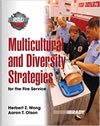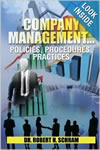All Articles
Accident Investigation & Reconstruction
Healthcare
Appraisal & Valuation
Hotels & Hospitality
Aquatics Safety
Human Factors
Archaeology - Archeology
Human Resources
Arms - Guns - Weapons
Hydrology
Artificial Intelligence (AI) / Machine Learning (ML)
Injury
Attorney Fees
Insurance Coverage Analysis
Banking
Land Use
Boating
Law Enforcement
Construction
Marine - Maritime
Cosmetology: Hair / Makeup
Medicine
Digital / Crypto Currency
OSHA
Documentation Examination & Analysis
Patents
Economics
Pharmacy & Pharmacology
Electrical - Electrocution
Plants & Trees
Elevators - Escalator - Automatic Doors
Plastic / Reconstructive / Cosmetic Surgery
Employment
Police Practices & Procedures
Energy - Utilities
Professional Malpractice
Engines (Combustion - Diesel)
Psychology
Environment
Radiology
Expert Witnessing
Recreation & Sports
Failure Analysis
Security
Food & Beverage
Supply Chain Management
Forgery & Fraud
Transportation
Gems & Jewelry
Warnings & Labels
More...

EXPERT-WITNESSING-PAGE ARTICLES MAIN PAGE
. Contact Us if you are interested in having your work published on our website and linked to your Profile(s).
All Articles
Alternative Dispute Resolution (ADR)
Industrial Hygiene and Safety
Aquatics Safety
Injury
Architecture
Insurance Coverage Analysis
Automotive - Vehicular
International Trade
Biokinetics
Land Mapping - Surveying - Zoning
Boating
Laws & Procedures
Business Consulting
Legal Issues
Child Witch Phenomenon
Logistics - Reverse Logistics
Computers
Manufacturing
Construction
Mediation
Corrosion
Medical - Medicine
Damages
Medical Malpractice
Design
Medical Records Review
Digital / Crypto Currency
Meditation
Education & Schools
Mining
Employment
Neuropsychology
Expert Witnessing
OSHA
Eyewitness Testimony
Pharmaceuticals
Family Issues
Plants & Trees
Feng Shui
Product Liability
Finance
Professional Malpractice
Food & Beverage
Search Engine Optimization (SEO)
Foot / Ankle Surgery
Slip, Trip & Fall
Foreign Affairs - Geopolitics
Toxicology
HVAC - Heating, Ventilation, Air Conditioning
Transportation
More...
Featured Articles
There are no active articles here at this time. Please use the search bar, try another category, or contact us if you would like to contribute an article.
This Article is unavailable. Contact Us
Search articles by title, description, author etc.
Sort Featured Articles
Featured resources
Multicultural and Diversity...
by Aaron T. Olson, et al
Sex, Lies and the Internet: A...
by Stephany Alexander
Company Management. . .Policies,...
by Robert H. Schram, DPA
Follow us










